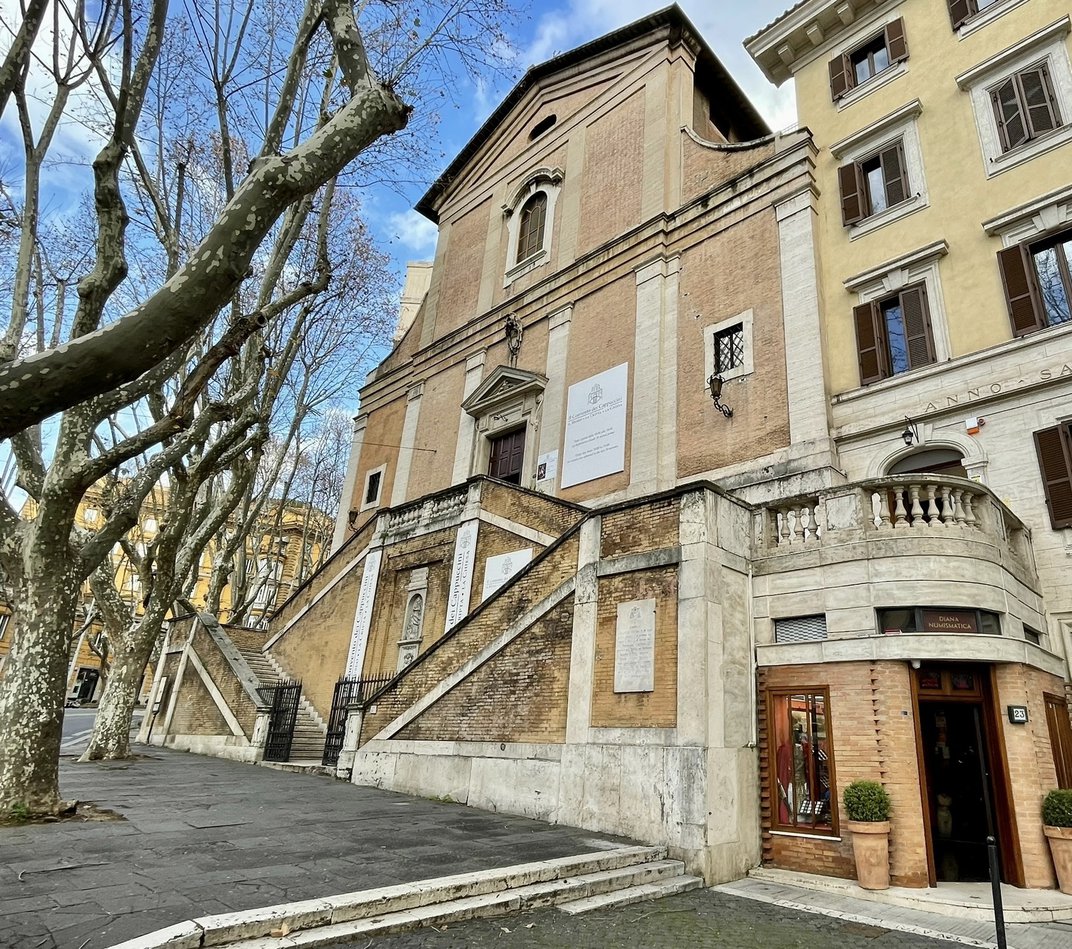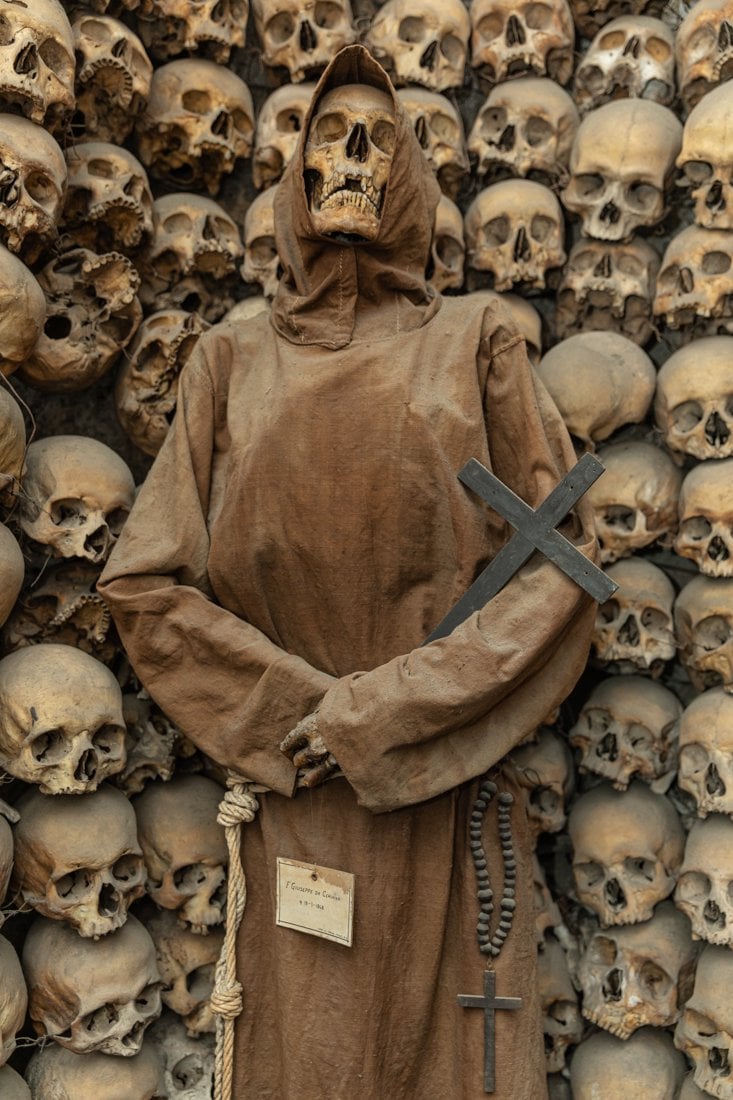Death is staring at me. He has no eyes, just hollow eye sockets, but I know he can see me. With no more than ten feet between us, Death stands immobile, garbed in a dirty, dusty cloak with a hood. Beneath the hood, I can make out a skull, grinning.
It’s early December, and on this crisp morning in Rome I’m walking on Via Veneto, one of the poshest streets in the city. Back in the 1950s and ’60s, this was the nerve center of la dolce vita, which Italian filmmaker Federico Fellini brought to the screen in his iconic masterpiece of the same name. But I’m not here to get a taste of the sweet life. If this were a film, the title would be La Dolce Morte. The sweet death.
At 27 Via Veneto sits the Chiesa di Santa Maria Immacolata, or the Church of Our Lady of the Immaculate Conception. Rome is home to more churches than New York City has Starbucks, but this isn’t just any church. It’s a historic church of the Capuchins, a Catholic order established in the 16th century. Its friars are devout in their dedication to living the Gospel. They dress solely in brown tunics and take vows of poverty, chastity and obedience.
The Chiesa di Santa Maria Immacolata, or the Church of Our Lady of the Immaculate Conception, sits at 27 Via Veneto in Rome. The Museum and Crypt of the Capuchin Friars
Beneath the church lies a crypt where almost 4,000 friars have been laid to rest. They’re not neatly buried under tombstones. Instead, their skeletons adorn the walls and ceilings, like 3D paintings. Even the ornate chandeliers are made out of bones.
I’m far from the first traveler to come to Rome to see this crypt for myself. It’s estimated that upwards of 200,000 visitors come every year. And they follow in the footsteps of famous tourists. The Marquis de Sade paid a visit in 1775. He commented that “I have never seen anything so striking,” high praise coming from a man who wrote violent pornography. A French libertine, Sade led such a depraved life the word “sadism” was coined after him. Almost a century later, in 1867, a budding American writer showed up at the crypt. “Here was a spectacle for sensitive nerves!” Mark Twain exclaimed, struck by its “picturesque horrors.”
The skeletal remains of a Capuchin friar, holding a wooden…
Click Here to Read the Full Original Article at Travel | smithsonianmag.com…
